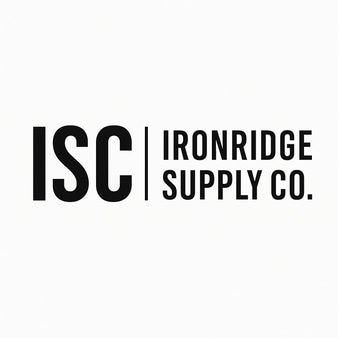Essential Welding Safety Gear: What Every Welder Needs to Stay Protected
WELDING SUPPLIES


Welding is a powerful industrial process—but it’s also one of the most hazardous. From blinding arcs to molten metal and toxic fumes, every weld carries risk. That’s why proper safety gear isn’t optional—it’s essential.
Head-to-Toe Protection for Welders
Let’s go top-down through the essential PPE for every welder:
1. Welding Helmet with Auto-Darkening Filter
Purpose: Protects eyes and face from UV/IR radiation, sparks, and flying debris.
What to Look For:
Auto-darkening lens with adjustable shade range (typically #9–#13)
ANSI Z87.1+ compliance
Comfortable headgear for long wear
Side shields for expanded protection
Pro Tip: Keep spare batteries and lens covers on hand to avoid downtime.
2. Respiratory Protection
Purpose: Guards against fumes from base metals, fluxes, and coatings.
Options:
Disposable respirators (NIOSH-approved N95 or P100)
Reusable half-mask respirators with replaceable filters
PAPR (Powered Air-Purifying Respirators) for heavy-duty work
When to Use: Always use respiratory protection when welding in confined spaces or on materials like galvanized steel, which emit hazardous fumes.
3. Welding Gloves
Purpose: Protects hands from heat, spatter, UV radiation, and electrical shock.
Types:
MIG gloves: Typically heavier with padded palms and long cuffs
TIG gloves: Thinner for dexterity, often made of goatskin
Stick welding gloves: Heavy-duty with added insulation
Fit Tip: Gloves should be snug but flexible. Oversized gloves reduce control and safety.
4. Welding Jacket or Sleeves
Purpose: Shields torso and arms from spatter, heat, and arc flash.
Materials:
Leather: Best for durability and protection
Flame-resistant cotton: Lighter and breathable for hot environments
Hybrid jackets: Combine leather sleeves with cotton body
Sleeves Only?: For short jobs, FR welding sleeves with a cotton shirt may suffice.
5. Welding Apron or Bib
Purpose: Provides additional protection to the lower torso and thighs.
Recommended For: Overhead welding or jobs with high spatter risk.
6. Welding Pants
Purpose: Full-leg protection from slag and radiant heat.
Do Not Wear:
Synthetic fabrics (they melt!)
Cuffed pants (hot metal can collect)
Do Wear:
Denim or FR-rated pants
Leather chaps for high-risk jobs
7. Work Boots
Purpose: Protects feet from falling objects, hot slag, and electric shock.
Features to Look For:
Steel or composite toe
EH (Electrical Hazard) rated soles
Metatarsal guards for added protection
Lace-free designs to avoid snag hazards
8. Ear Protection
Purpose: Prevents hearing loss from grinders, hammering, and welding arcs.
Options:
Foam earplugs
Earmuffs rated for high-decibel environments
9. Eye Protection (Secondary)
Even with a helmet, always wear safety glasses underneath. Grinding or chipping without them is a fast track to eye injuries.
Safety Gear Compliance & Maintenance
Always Check for:
ANSI/ISEA certification for PPE
Fit and wear condition
Cleanliness and proper storage
Replace PPE if:
Helmets or lenses are cracked or damaged
Respirator filters are clogged or expired
Gloves are scorched or stiff
Jackets are torn or soaked with oil/chemicals
Download the Welding PPE Safety Checklist
Need a printable list for your shop floor or tool crib?
👉 Download our Welding Safety Gear Checklist PDF
